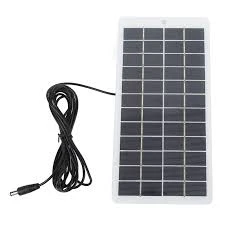solar panel for small boat
Solar Panels for Small Boats Harnessing the Power of the Sun
In recent years, the popularity of solar panels has surged, primarily due to their environmentally friendly nature and the increasing demand for sustainable energy solutions. For small boat owners, integrating solar panels into their vessels presents an excellent opportunity to harness renewable energy for various applications, from powering onboard electronics to minimizing reliance on traditional fuel sources.
Advantages of Solar Panels for Small Boats
One of the key advantages of using solar panels on small boats is the reduction of carbon emissions. Traditional generators and fuel-powered systems contribute significantly to environmental pollution. By opting for solar power, boaters can enjoy the tranquility of nature without leaving a carbon footprint. This eco-friendly option aligns with the growing movement towards sustainable living and responsible boating practices.
Moreover, solar panels provide a reliable power source while at sea or docked. When equipped with an efficient solar energy system, boaters can generate electricity to charge batteries, run lights, operate electronics, and even power small appliances. This independence from shore power allows for extended voyages and enhanced self-sufficiency, making it easier to enjoy longer trips without the constant worry of running out of battery power.
Selecting the Right System
When considering solar panels for a small boat, several factors come into play. The size of the boat, the intended use of the solar energy, and the available space for solar panel installation are critical considerations. Generally, a small cruising sailboat or a motorboat may require a solar setup that can provide anywhere from 100 to 400 watts of power. This capacity is usually sufficient to cover the basic needs for lighting, navigation systems, and small electrical devices.
Most solar panels come in two types monocrystalline and polycrystalline. Monocrystalline panels are known for their high efficiency and compact design, making them ideal for smaller surfaces where space is limited. On the other hand, polycrystalline panels are generally less expensive but tend to occupy more space for the same output, which may not be suitable for all small boats.
solar panel for small boat

Installation Process
Installing solar panels on a small boat may seem daunting, but it can be a straightforward process with the right tools and some basic knowledge. The first step involves choosing the appropriate location for the solar panels, often on the roof or deck where they can receive maximum sunlight exposure.
Adhesive mounts, brackets, or a rail system can secure the panels, ensuring they remain in place during movement. It’s essential to ensure that the panels are installed at a slight angle to maximize sun exposure, especially during the early morning and late afternoon. Once positioned, connecting the solar panels to a solar charge controller is the next crucial step. This device regulates the voltage and current coming from the panels to prevent overcharging, protecting the onboard battery system.
After the solar charge controller is installed, it’s time to connect it to the battery bank. Typically, marine-grade batteries, such as deep-cycle batteries, are recommended due to their ability to withstand continuous charge and discharge cycles. The final connection leads to the boat’s electrical system, allowing the energy harvested from the solar panels to be utilized effectively.
Maintenance and Care
Maintenance of solar panels on a small boat is relatively minimal, primarily involving regular cleaning to ensure that dirt, salt, and debris do not block sunlight. Periodic checks of the electrical connections and the charge controller are also advisable to ensure everything runs smoothly.
Conclusion
In conclusion, integrating solar panels into small boats presents a simple yet effective way to harness renewable energy, reduce environmental impact, and enhance the overall sailing experience. By choosing the right system and ensuring proper installation and maintenance, boat owners can enjoy a reliable source of power, allowing for longer, more sustainable adventures on the water. As technology continues to grow, the future of solar energy in boating looks promising, paving the way for greener and cleaner recreational activities.
-
String Solar Inverter: The High-Efficiency Solution for Smart Solar EnergyNewsJul.14,2025
-
Revolutionizing Rooftop Energy with the Power of the Micro Solar InverterNewsJul.14,2025
-
Power Independence with Smart Off Grid Solar Inverter SolutionsNewsJul.14,2025
-
On Grid Solar Inverter: Powering the Future with Smart Grid IntegrationNewsJul.14,2025
-
Monocrystalline Solar Panels: High-Efficiency Power for the Future of Clean EnergyNewsJul.14,2025
-
Bifacial Solar Panel: A Smarter Investment for Next-Generation Energy SystemsNewsJul.14,2025







